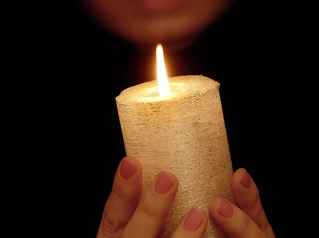Early this month, the Managing Editor of America magazine, Kerry Weber, received a phone call from her mom telling her that her niece had been born. She knew that the joyful news of the birth brought with it a tragic overshadowing of imminent death. Usually there is so much more time in-between the birth and end of a life. But for little Marian Elizabeth, prenatal diagnoses had forewarned her family that her life would likely be a short one.
Marian Elizabeth’s life was brief — lasting just a few hours outside the womb — but has left a lasting impression on those who loved her. Kerry recalls seeing her niece for the first time, from afar, on a video chat:
Marian Elizabeth… is wearing a hat that is way too big for her tiny body, two months premature. My sister, Elizabeth, is holding her daughter both gingerly and with such strong love. And I just keep saying over and over again, “She’s so beautiful, I love you both so much. You are both so beautiful. I love you. I love you. She is beautiful,” even though I know my niece can’t fully comprehend it, while at the same time trying to understand it all myself.
Shortly thereafter, Kerry found herself at Marian Elizabeth’s funeral. It was “one of the most horrible and beautiful experiences of my life,” she recalls, “at once tragic and grace-filled.”
She looks so somber and so strong and still young but wears a more weathered expression, like someone who has been at sea for a long time and is still getting used to land again… And as heartbreaking as it is to see the casket carried in by the man from the funeral parlor, it is more heartbreaking to see it as my sister and her husband carry it out together after the liturgy, walking while swaying with grief, and singing and crying… But by far the most heartbreaking moment comes early in the Mass, as I watch my mother looking at my sister looking at that casket, both faces stricken with grief on behalf of their daughters.
Weber recognized her niece’s beauty in the midst of a reality of suffering that is increasingly heart-wrenching for her entire family. Weber articulates the emotions that often remain unspoken, buried in grief for years after an experience like the one her family endured. She attests to the suffering, but highlights the paradox that in the bitterness of loss, there are strongholds:
Yet there is no doubt that suffering does test us. It forces us to figure out why we keep going, what we should rely on. And I have to believe that while God is not making clinical notes, God is taking note. Even when it feels as though we are alone, God sees us being changed by suffering. And even more than that, God accompanies us. God accompanies us through that pain, through the numbness, through the disbelief and the unbelief.
Kerry Weber’s full account can be read here, at America magazine.







